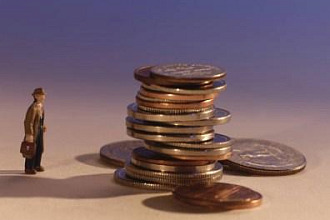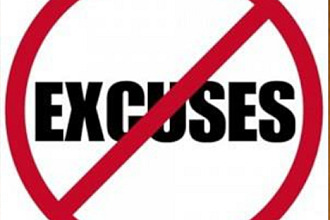Did you know that shopping is a science? At least it is to the modern business retailer who not only employs salespersons and clerks, but also may have a shopping anthropologist on contract.
What is a shopping anthropologist? This is the person who is stationed near strategically positioned merchandise to see how each shopper reacts to that merchandise, watching and timing their every move and behavior and then reporting this data to a marketing company such as Envirosell, Inc. This company has branch offices in every major city with personnel who lurk in the shadows and observe shoppers at most major retailers and malls. The evidence from this company shows that 70% of all purchases are unplanned. Of that 70% in 2011, 43% of shoppers said they spent more than they planned because the "deals were so good." Believe me, shopping is really a competition between you and your money and the retailers and their profit.1
Good shopping skills developed over time will save you and your family hundreds of dollars for your household budget. Listed below are a few shopping tricks, traps and ploys to help make you a winner in the shopping game.
Shop to Shop, Not to Drop
Refuse to go to the local mall or galleria unless you have a reason. Remember what usually happens when you visit a store? You buy something! Unless you have one of the genes from Mr. Scrooge, you can always find a reason to drag home something when you browse at a shopping center. And let's not forget that you also have to find a place to put that new item.2
Just Say No!
Just say NO to extended warranties – period. For the seller, the profit margin on an extended warranty is often far more than the profit on the item itself. If the words, "No thank you, the manufacturer's warranty is sufficient," are not enough and the clerk harasses you about purchasing the extended warranty, add this question, "Is this product so bad that it needs a warranty for the first two years?"
It's Amazing!
Did you ever wonder how the big box stores (supercenters, superstores, megastores) can have advertising claims such as no interest for three years and still stay in business? In the majority of cases, they are passing those upfront costs on to a credit card company. Even if they do carry the large outlay for those three years, statistically they know that more than 80% of purchasers will not pay off the item on time and will end up paying the 28% interest, which unfortunately is retroactive to the date of purchase. Seventy-two percent of people have every intention of paying the balance in full a few days before the due date, but then have an unforeseen situation or money crisis and end up paying twice as much.
Wait Until the End
The goal of retailers is for you to purchase store products at full price
so they make maximum profit. But they do have clearance sales at the end of each season or after particular holidays to make room for new merchandise. Your goal should be to shop those end of season sales. However, buy and put away only the items you know you will definitely use in that season next year.3
Beware of Warehouses
Purchasing in quantity is great because it saves you money, but don't buy more than you will use over the next 12 months. Paying an extra 30 cents each for a couple cans of beans at the local supermarket is better than paying an extra three dollars at the superstore to purchase a packet of twelve cans of beans, then using only two of them and having the rest sit on the pantry shelf for months and months.
Play the Match Game
Having a coupon is like having an ace in a supermarket game, but remember that you'll get a better value for your money if you can combine a coupon with a great sale on the specific item you wanted. Coupons can still be found in newspapers and magazines, but the good news is that they now can be downloaded from the Internet. Go to the website of your favorite manufacturers and print the coupons they are offering. Also, remember that the average supermarket or drugstore has a sale on most items every three months — try your best to combine that sale with a great coupon.
Mind the Images
Behavioral economists relish the opportunity to experiment on people and particularly on our children. They have found that if you single out a bowl of fruit with a glistening light, youngsters are more likely to eat that particular fruit item. We have known for a long time that candy companies place snack bars and sweets at children's eye level to entice sales. Interestingly, placing a salad bar in front of a shelf of candy at school actually encourages children to eat more salad. Perceptive restaurateurs often plan their menus with simple design logos and sample in pictures and boxes that influence adult customers to purchase more profitable entrées. If you want to save money at a diner or café, a good rule of thumb is to avoid menu items that are emphasized by either an illustrated box or a highlighted image.4
Watch the Clerk
Make it a habit never to stand idly by at the checkout counter. Watch as the clerk rings up your items and prices. If you can't monitor it right then, take a few moments afterwards and check your receipt. How many times has a busy clerk accidently scanned the same item twice? It may be just a few dollars here and there, but it might surprise you how much of your money is being donated to the store because of human and scanner errors.2
If you regularly and consistently make use of these principles, you are guaranteed to make that paycheck go further every week.
Resources:
1. Mary Hunt, "The Science of Shopping," Debt-Proof Living Newsletter, July 2010: pp. 1 & 4.
2. Cynthia Yates, "Becoming a Savvy Consumer," Sound Mind Investing Newsletter, October 2004: p. 150.
3. Mary Hunt, "Consumer Tricks and Treats," Debt-Proof Living Newsletter, October 2010: p. 1.
4. Derek Thompson, "How Good is Your Shopper's Math?" Reader's Digest, February 2013: p. 149.


























